
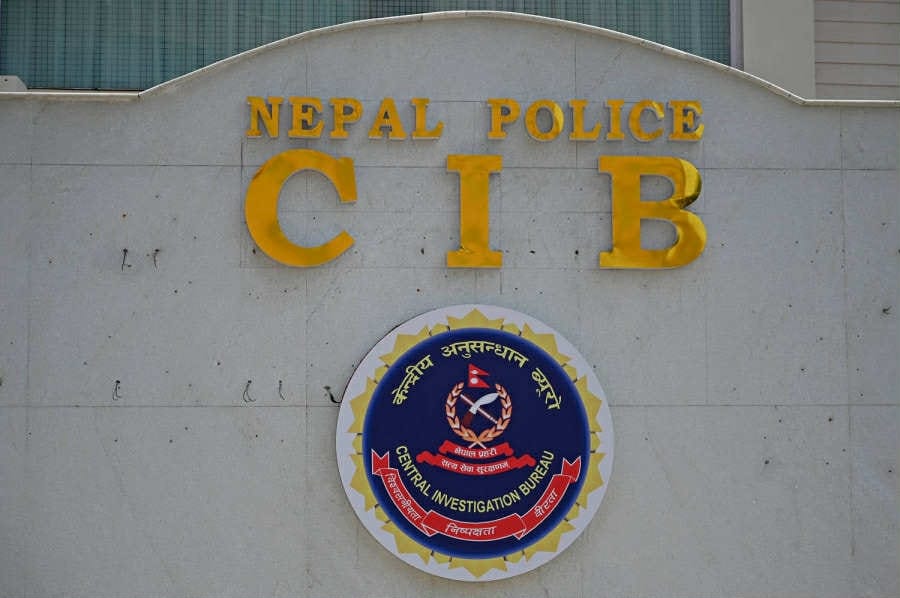
KATHMANDU: Nepal Police’s Central Investigation Bureau (CIB) has reopened and intensified the investigation into the fake Bhutanese refugee scam following the arrest of a new fugitive middleman.
High-level CIB officials confirmed to Nepal News that the probe has been “relaunched with a new dynamic” after the recent political changes and the Gen-Z–led public pressure on governance.
CIB on Thursday arrested Niranjan Kumar Kharel, a key middleman who had been absconding for months. With his arrest, investigators say the long-stalled second phase of the probe has now “formally moved to the upper level,” targeting powerful political and bureaucratic actors who allegedly facilitated the fraudulent registration of Nepali citizens as Bhutanese refugees for resettlement in the United States.
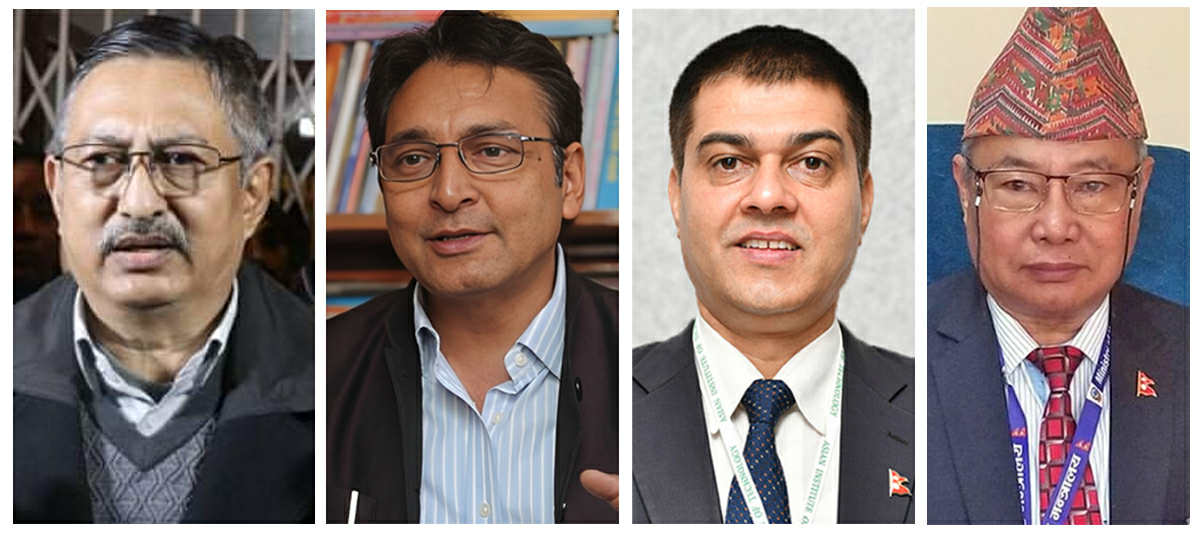
High-profile figures arrested in the Fake Bhutanese Refugee Scam (from left to right): former Home Minister Bal Krishna Khand, former Deputy Prime Minister Top Bahadur Rayamajhi, former Home Secretary Tek Narayan Pandey, and former security advisor to the Home Minister Indrajit Rai.
According to senior CIB sources, the bureau is now examining fresh links involving top political figures, high-ranking bureaucrats, mediators, and prominent public campaigners suspected of working together in the multi-million-rupee scam.
The second phase of the investigation had resulted in the arrest of several high-profile individuals, including former Home Minister Bal Krishna Khand, former Deputy Prime Minister and Energy Minister Top Bahadur Rayamajhi, and former Home Secretary Tek Narayan Pandey, the ministry’s senior-most bureaucrat at scan time.
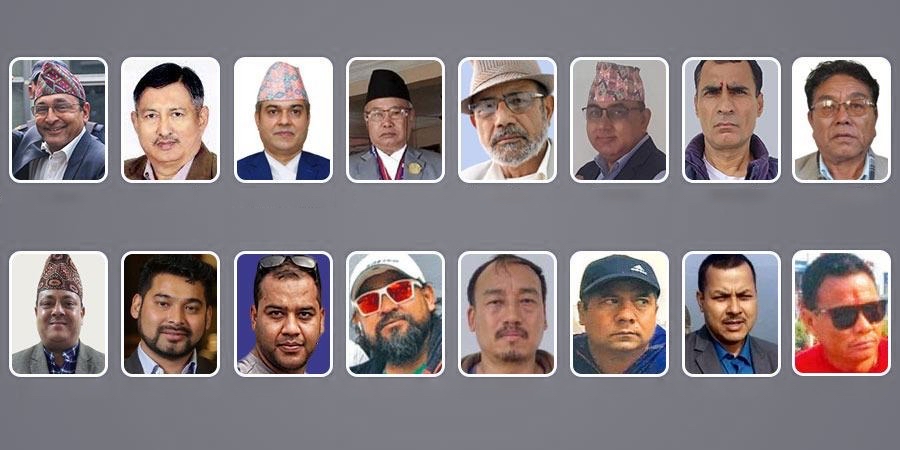
On May 24, 2024, the District Attorney’s Office, Kathmandu, filed criminal cases against 30 individuals in the first phase of the Fake Bhutanese Refugee Scam. Many high-profile figures were in police custody at the first phase of investigation. The Kathmandu District Court sent 16 people, including former ministers Top Bahadur Rayamajhi and Bal Krishna Khand, to jail. Khand was later released on bail by the Patan High Court, while Rayamajhi remains in jail.
However, the second phase stalled after the arrest of Bechan Jha, who is accused of operating as a major broker. Jha allegedly coordinated with senior government officials and political leaders to collect large sums of money from Nepali citizens by promising to send them to the US as “Bhutanese refugees.”
After the government collapsed and the UML–Congress coalition took power, police were unable to move the investigation forward, leaving only the case file of Jha but other investigation pending.
Now, with renewed political direction and a special team deployed, CIB has resumed the probe with strengthened momentum. Officials say the investigation will move “upwards in the chain” to identify all actors involved in the organised network of corruption and fraud.
A high-level CIB source confirmed that the COB will intensify investigation with statement-taking from those in jail and other accused starting tomorrow.
How did fake bhutanese refugee probe achieve a quiet breakthrough?
The fake Bhutanese refugee scam—one of Nepal’s most explosive corruption scandals—was not cracked by a large task force or political directive. It was broken open by a discreet operation led by a then–SSP Manoj KC, now AIG and chief of the Central Investigation Bureau (CIB). At the time, KC was heading the Kathmandu Valley Crime Investigation Office, where he quickly realised that the ringleaders were protected by powerful political actors. They had been arrested before and released within hours. If the investigation was to move anywhere, it would require precision, secrecy, and impeccable timing.
In late March 2023, Nepal Police entered a brief leadership vacuum. IGP Dhiraj Pratap Singh retired on March 24. His successor, Basanta Kunwar, was scheduled to take charge at 10 a.m. on March 26. KC understood the opportunity this created. Before Kunwar could assume office, KC deployed his team and arrested the key ringleaders—Keshav Dulal, Tanka Gurung, and Sanu Bhandari—within those early morning hours of March 26. He recorded their statements the same day and transferred them to the Kathmandu Police Range, adhering to protocol. He also issued a written recommendation stating that the high level investigation, a bold move at a time when political protection repeatedly shielded the masterminds.
This decisive move triggered a chain reaction that would eventually bring ministers, senior bureaucrats, and long-protected power brokers into the public eye.
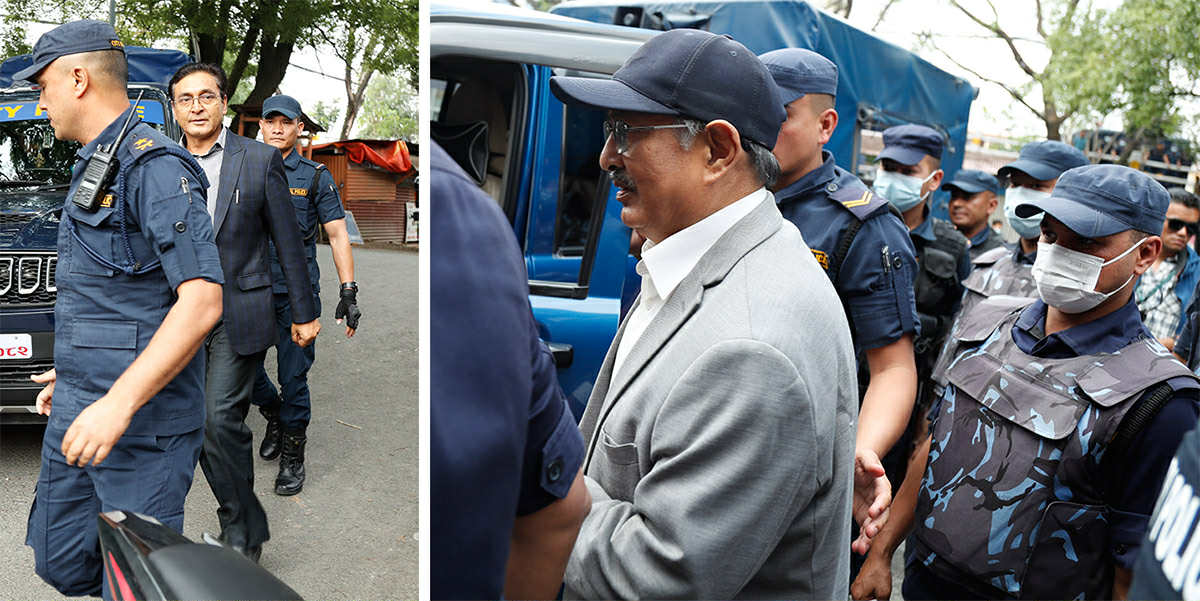
Former Deputy Prime Minister Top Bahadur Rayamajhi (left) and former Home Minister Bal Krishna Khand (right) in police custody during the first phase of the Fake Bhutanese Refugee Scam investigation in May 2023.
The roots of the scandal trace back to June 1, 2022, when eighty-one victims filed a complaint alleging they had been cheated of Rs 130 million after being promised resettlement to the United States as Bhutanese refugees. They identified Dulal and Gurung as the ringleaders and provided extensive evidence. Despite the gravity of the complaint, the Crime Investigation Office under the Basanta Kunwar showed little urgency. An arrest warrant was issued only on June 11, and Dulal and Gurung were arrested a few days later.
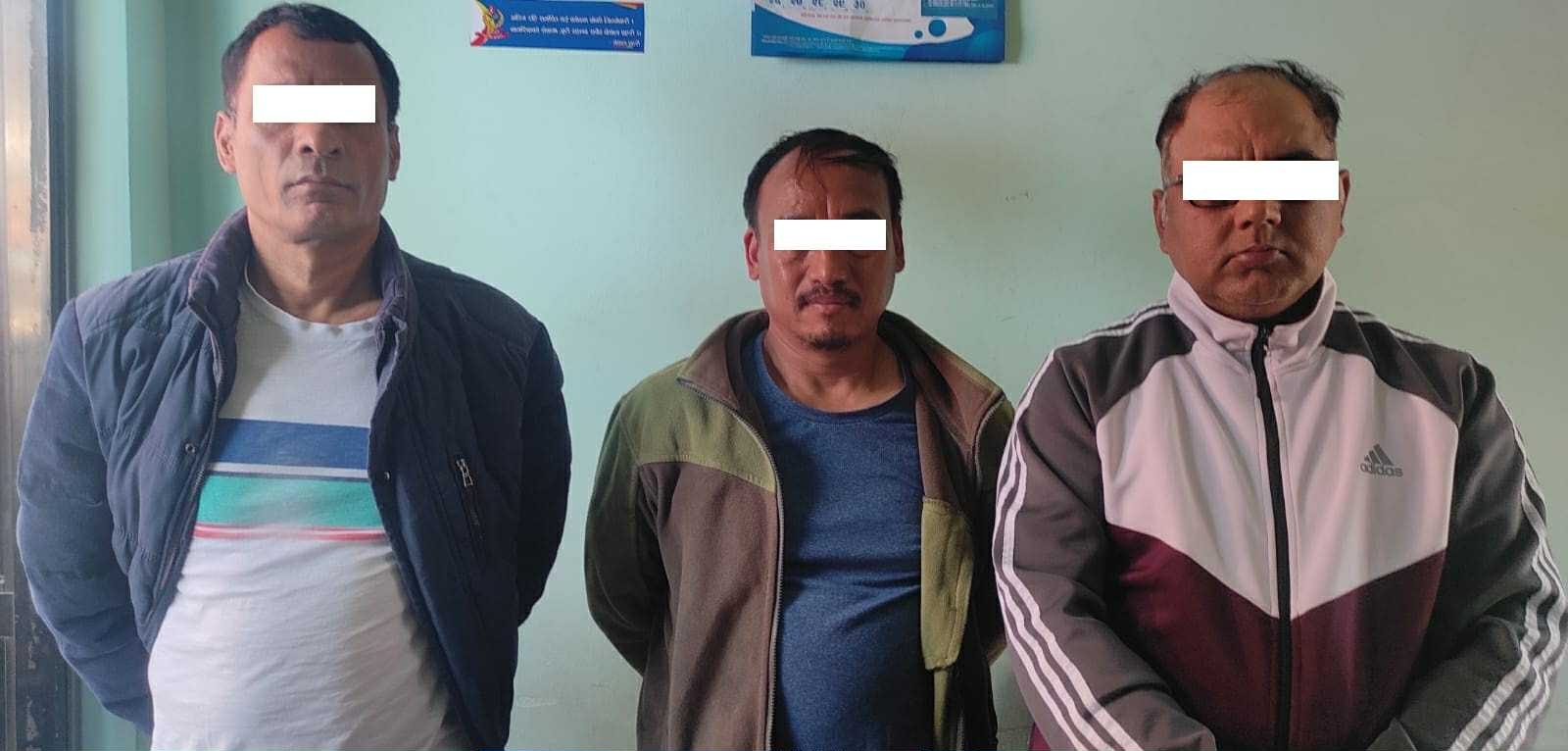
The Kathmandu Valley Crime Investigation Office arrested Keshav Dulal (right), Tanka Gurung (Centre), and Sanu Bhandari (left) during the early phase of the Fake Bhutanese Refugee Scam investigation in March 2023.
But the arrests did not last. The two men openly threatened police officers, boasting that they had “paid everyone,” implicating senior political leaders. Their warnings quickly reached then Home Minister Bal Krishna Khand, and the pair were released within hours by SSP Basanta Kunwar, who did not maintain any official record of the arrest. Kunwar, who had earlier ranked 13th among candidates during his promotion to SSP, was unexpectedly promoted to DIG as the top-ranked candidate shortly after these events. His extended stay at the Crime Investigation Office until July 1—and frequent communication with the scammers—intensified suspicion and he did not like investigation even his IGP time.
Within the police force, reluctance to pursue the case became apparent. Former IGP Kunwar, during his tenure as the head of the Crime Investigation Office, appeared to shield Minister Khand and coordinate with former Home Secretary Tek Narayan Pandey to blunt the investigation. His successor, Janak Bhattarai, showed equal disinterest despite persistent visits from victims pleading for justice.
The direction of the case changed only after Manoj KC took over on January 12, 2023. Upon reviewing the dormant case file, he recognised the network’s deep ties to senior politicians. He quietly formed a small surveillance team and instructed officers to monitor the ringleaders, slowly rebuilding the case that had been deliberately pushed aside.
By mid-2024, just as KC began preparing to re-arrest Dulal and Bhandari and launch the long-delayed second phase of the investigation, political tensions were rising again. A new wave of victims from Lamjung, Sunsari, Sindhupalchowk, Gorkha, Lalitpur, Kathmandu, and other districts filed fresh complaints, accusing Dulal, Bhandari, and Ram Sharan KC of swindling an additional Rs 18.5 million. This renewed pressure placed the spotlight back on the case and on that time Prime Minister Pushpa Kamal Dahal and Home Minister Narayan Kaji Shrestha, who faced growing calls to allow the investigation to proceed unhindered.
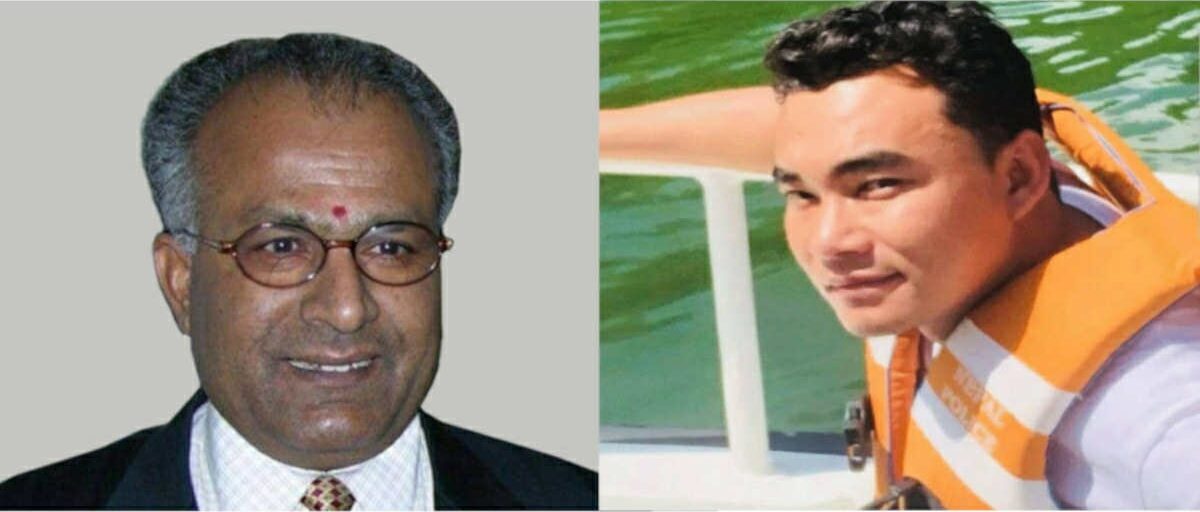
High-profile middlemen in the Fake Bhutanese Refugee Scam — Bechan Jha (left) and Prateek Thapa, son of CPN-UML Vice-chair Ram Bahadur Thapa. Police had arrested Jha on June 28, 2024.
However, the political establishment responded differently. Rather than strengthening the probe, the government began transferring the very officers who were driving it. In August 2024, the Cabinet transferred AIG Shyam Gyawali, chief of the Kathmandu Valley Police Office, despite his critical role in pursuing the case. Soon after, the Home Ministry transferred SSP Manoj KC from the Crime Investigation Office and SSP Dan Bahadur Karki from Kathmandu Police to Police Headquarters. These moves, driven largely by political pressure, effectively stalled the second phase of the investigation.
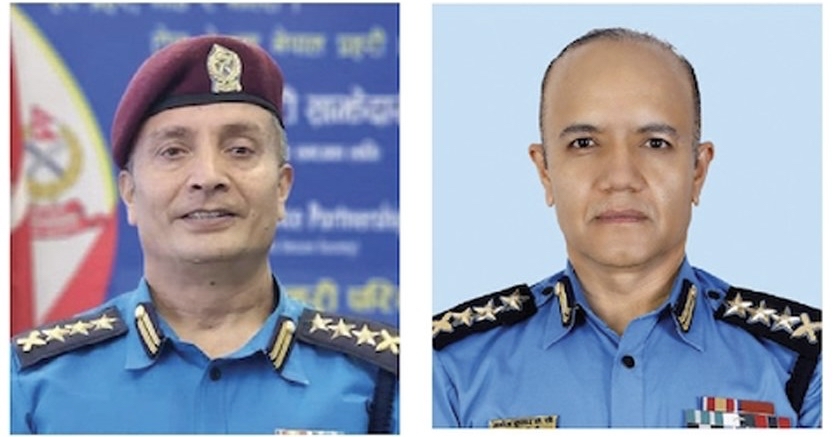
Following the first phase of the Fake Bhutanese Refugee Scam, the Home Ministry transferred SSP Manoj KC (right) of the Kathmandu Valley Crime Investigation Office and Kathmandu Police Chief Dan Bahadur Karki (left).
Even as the case gained new national attention and additional victims continued to come forward, the investigation repeatedly collided with entrenched interests determined to shield senior political figures. Yet the early work done under KC’s leadership—particularly his strategic arrests and insistence on investigating the Home Ministry—laid the groundwork for the case’s eventual revival under the CIB.